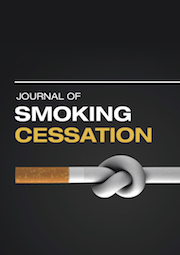Article contents
Are smoking cessation behaviours among daily smokers associated with a perceived public stigma of smokers? Cross-sectional analyses of Norwegian data 2011–2013
Published online by Cambridge University Press: 14 October 2020
Abstract
Perceived stigma may be an unintended consequence of tobacco denormalization policies among remaining smokers. Little is known about the role of perceived stigmatization in cessation behaviours.
To test if perceived public smoker stigma is associated with recent attempts to cease smoking and future cessation plans among adult daily smokers.
Using merged data from the biennial national survey Norwegian Monitor 2011 and 2013 (N daily smokers = 1,029), we performed multinomial and ordinal regression analyses to study the impact of perceived public stigma (measured as social devaluation and personal devaluation) on recent quit attempts, short-term intention to quit and long-term intention to quit, controlling for confounders. One additional analysis was performed to investigate the relationship between stigma and intention to quit on quit attempts.
A significant association between perceived social devaluation and recent quit attempts was found (OR 1.76). Perceived stigma was not associated with future quit plans. Personal devaluation was not associated with any cessation outcome. The role of perceived social devaluation on quit attempts was mainly found among smokers with intentions to quit.
These findings indicate that stigma measured as social devaluation of smokers is associated with recent quit attempts, but not with future quit plans.
- Type
- Original Articles
- Information
- Copyright
- Copyright © The Author(s), 2020. Published by Cambridge University Press
References
- 4
- Cited by


